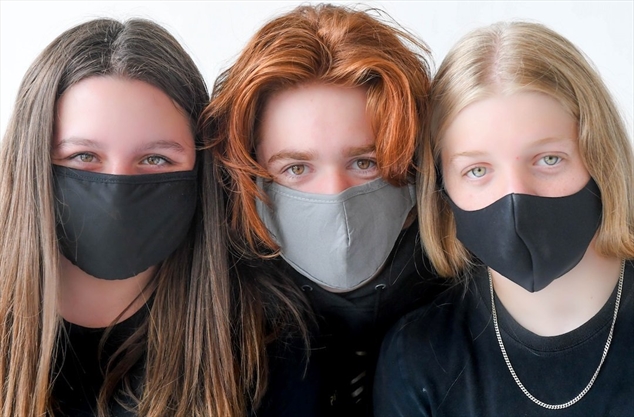Before the COVID-19 pandemic hit, Andrew Fuller was thriving at school.
The third-year York University student, who had been dealing with depression, said for the first time in years, he felt like he really had control over his studies.
“I went through the whole school year for the first time totally going to all my classes and staying motivated the whole year,” he said.

But once schools turned to online models of learning in March, his progress came to a halt. Fuller said he found himself unmotivated, falling into old patterns due to the lack of routine.
This semester has been even more challenging.
“It’s been pretty brutal, honestly. The school online component has been strange; there’s not much consistency … some classes are completely synchronous and live, and some of them are completely asynchronous,” he said. “It’s been very difficult just because I’m someone that needs structure.”
In a about mental health amid the pandemic, Meagan MacKenzie, an assistant professor of psychology at McMaster University, cited a routine schedule as one potential mitigating strategy for those dealing with depression, adding that “it takes away that feeling of uncertainty that we might have in this pandemic situation.”
Fuller said even small activities scheduled into his week, like being able to work out of a coffee shop or having in-person discussions in a university tutorial, have been helpful in the past.
“Not being able to do that now is also kind of obstructing me,” he added. “It’s not easy for me to work at home. I don’t find that I can focus very well.”
On Oct. 6, the Ontario government announced an investment of $19.25 million into mental health initiatives for post-secondary students, which includes a mental health helpline, an online application, a knowledge exchange hub and grants for mental health workers and services.
“Our government is ensuring post-secondary students have the right mental health services and supports that they need during these unprecedented times,” Health Minister Christine Elliott said in a news release. “Targeted investments like this one, is another example of how we continue to build a comprehensive and connected mental health and addictions system, so every Ontarian feels supported so they can maintain their mental wellness.”
Fuller, who has been advocating for more accessible mental health services for students, said this is a good step.
 Andrew Fuller is in his third year at York University. – Andrew Fuller photo
Andrew Fuller is in his third year at York University. – Andrew Fuller photo
For many students navigating high school this year, their new COVID-19 schedule has also been difficult to manage.
Sevin Davies, a Grade 10 student from Beamsville, said the new quadmester model adopted by school boards across the province has added an extra element of stress to the year, as he and his peers are now learning the same subject for six hours each day and will finish the credit for that course within only a few weeks.
“It can get frustrating and tough sometimes,” he said.
Davies, along with two of his Grade 10 peers, Duncan McDonald and Adia Binfield, are currently raising funds for children’s mental health, as part of , which supports local mental health foundation, . The group is this year.
“It’s very real that kids suffer from mental health too, so if they see someone like them that’s speaking out about it, they’re more likely to go and try to find help,” Binfield said.
McDonald added that another aspect of back-to-school that has been challenging for him and his peers is the lack of social time with friends.
“Lunch times are staggered and you really don’t see any of your friends all day because you’re six feet apart from anyone in the school,” he said. “It’s very difficult in a social environment like a school, to have no social contact. And just have six hours of school with no friends, really.”
Davies said the campaign is especially timely as kids are back in school and dealing with a lot of mental stressors.
“Mental illnesses have been completely through the roof and fundraising has been really hard, but the mental illness doesn’t stop. People still need help,” Davies said. “So we need to find a way to raise money.”
